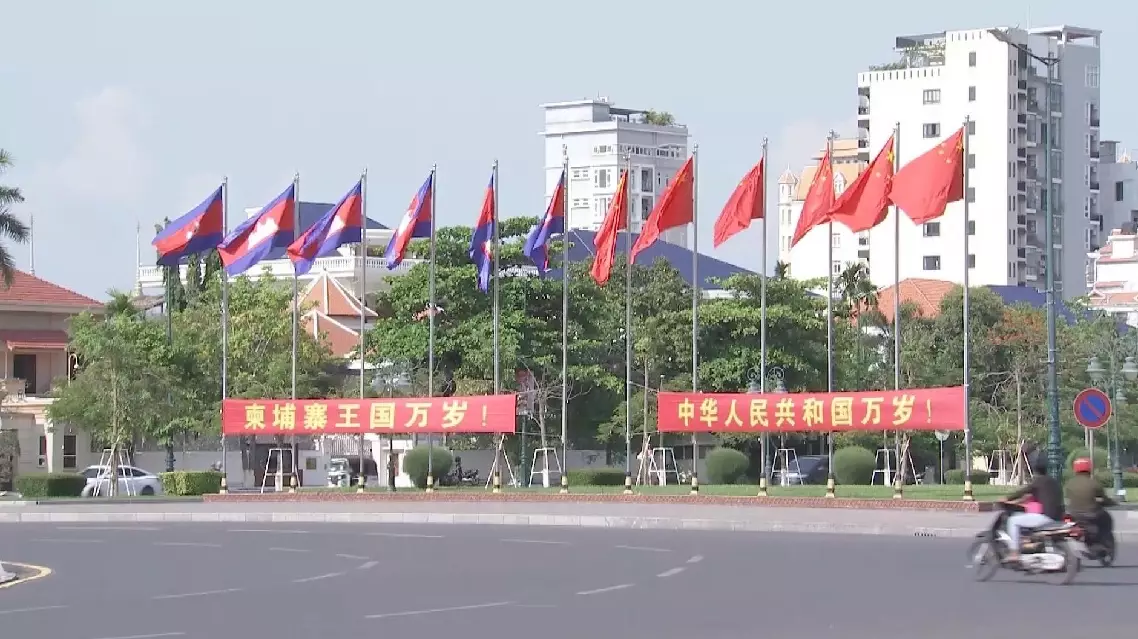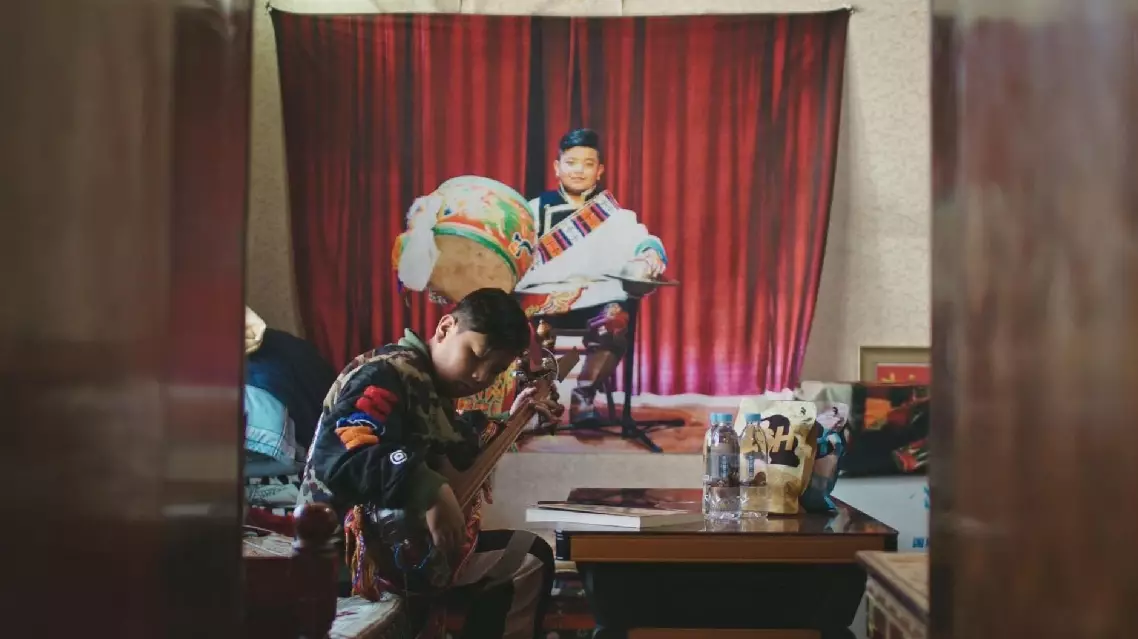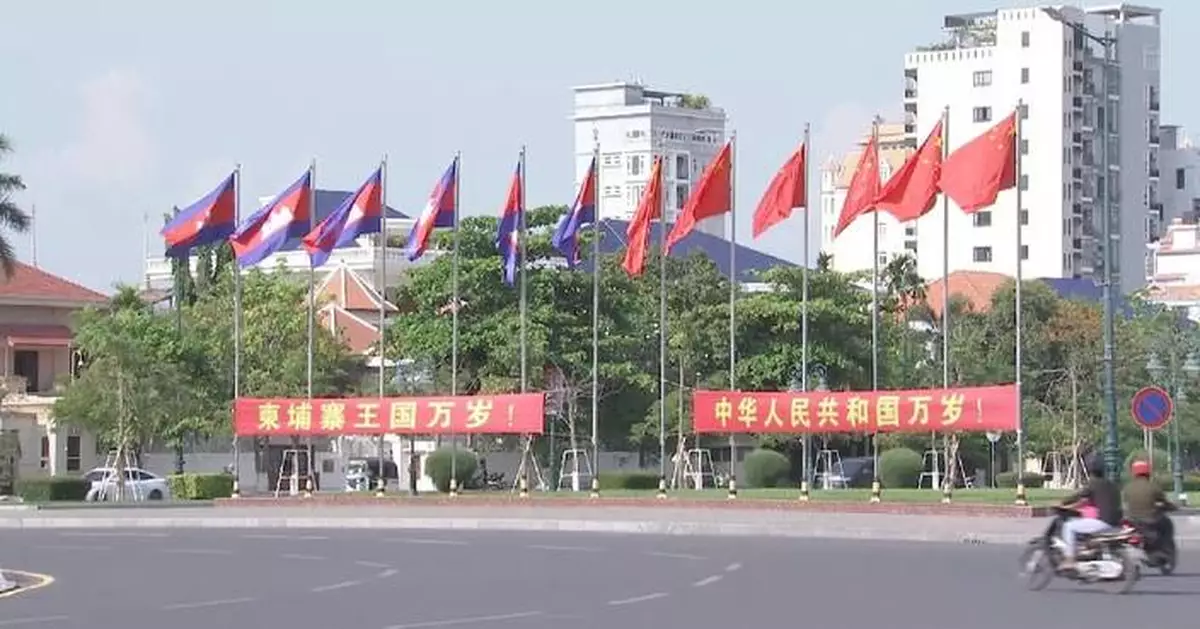China and Cambodia share a deep-rooted bilateral relationship that stretches back decades, while the two countries remain committed to jointly addressing regional and global challenges, according to a Cambodian international relations expert.
The two sides first established formal diplomatic ties in 1958, and have enjoyed frequent high-level exchanges which have reinforced their strategic political trust, solidified a longstanding friendship and fostered mutual benefits.
Relations between the two countries are in the spotlight as Chinese President Xi Jinping arrived in the Cambodian capital Phnom Penh on Thursday to begin a two-day state visit at the invitation of King Norodom Sihamoni.
The close China-Cambodia connection goes back to King Sihamoni's father, the late King Norodom Sihanouk. He had lived in exile in the historical Dong Jiao Min Alley, part of the old Legation Quarter in Beijing, before heading home to lead his country to independence. He later returned to spend his final years at this location considering it as his second home, before he passed away in the Chinese capital at the age of 89 in 2012.
Kin Phea, director general of International Relations Institute at the Royal Academy of Cambodia, highlighted how this important history has laid the foundations for the ties between the two countries.
"The monarchy is very important in stabilizing our bilateral relationship. Governments may change, but the monarchy, the king is there. The most important figure in Cambodia was our late king, who laid very solid foundation for our bilateral relations," he said.
Looking ahead to possible outcomes from Xi's current visit to Cambodia, which marks his first to the country in nine years, Phea said he expects deeper cooperation across multiple fields.
"It also highlights the solidarity between the two countries and our commitment to address the regional and global challenges we face together. China has become an engine of global growth [which] protects multilateralism in trade, in governance, and development, particularly inclusive prosperity," he said.

China, Cambodia share strong legacy of diplomatic ties: expert
With dramyin lute and cymbals in hand and dressed in colorful traditional costume, 17-year-old Tenzin Norbu is among the proud youngsters in southwest China's Xizang Autonomous Region who have been helping preserve the centuries-old Tibetan opera, a multifaceted representative of Tibetan art and cultural heritage. Considered a living fossil of Tibetan culture, Tibetan opera is a comprehensive art combining folk songs, dance, storytelling, chant, acrobatics and religious performance. It was included on the UNESCO Representative List of the Intangible Cultural Heritage of Humanity in 2009.
Tenzin grew up listening to Tibetan opera along with his grandmother. The beat of the drum marked the rhythm of his childhood and quietly planted the seed of a dream.
The teenager leads a youth Tibetan opera troupe and guides his peers onto the very stage they once only dreamed of. He named it "Phudor Youth Tibetan Opera Troupe", because "Phudor" means "dream" in the Tibetan language.
"There are about 24 members in the troupe," said the teenager.
Tenzin once received a very special invitation to perform Tibetan opera for the opening ceremony of an art festival in Lhasa.
Although both their parents and teachers felt it's important for the children to be exposed to traditional culture from a young age, they didn't want it to affect their schoolwork.
The performance they were getting ready for was the first Sweet Tea House Art Festival, the troupe's very first public appearance. It's a rare opportunity for the children -- one too precious for them to pass up. But with their parents growing anxious about preparation for the performance eating into valuable study time, the children opted to rehearse in secret at weekends. Tenzin's family runs a tailor's shop. His father, who is hearing- and speech-impaired, is a superb tailor, while his mother helps him out by dealing with customers. Tenzin enjoyed Tibetan opera with his grandmother during childhood and later learned more about it from his uncle.
"Whenever I'm not feeling good, I'll take out the dramyin lute and the cymbals. When I hear the drumbeat, I get a feeling of elation that's simply indescribable," he said.
When Tenzin finally stepped onto the stage at the festival, he noticed that his parents were not in the audience. "My parents didn't have time to come to see my performance. But they always support me. They work hard every day, also for my sake. So, I'm happy whether they were here or not as long as I can keep performing Tibetan opera," said the youngster, believing that his passion for Tibetan opera will last a lifetime.

Childhood dream takes local boy onto Tibetan opera stage






















































